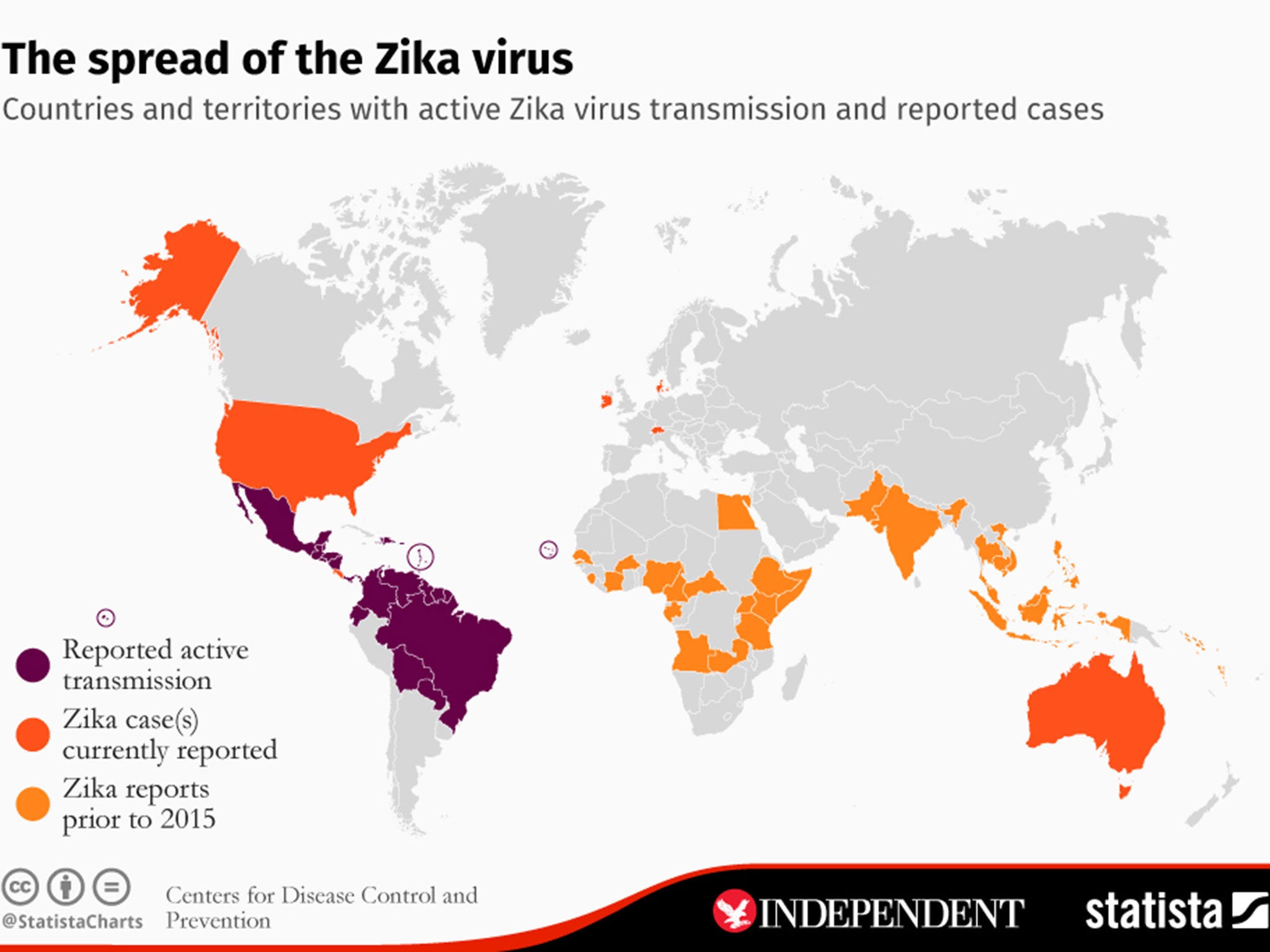Zika: Brazil street carnivals could prove 'explosive cocktail' for spread of virus, expert warns
Dr Sergio Cimerman issues warning as thousands prepare to begin week-long festivities this weekend

Your support helps us to tell the story
From reproductive rights to climate change to Big Tech, The Independent is on the ground when the story is developing. Whether it's investigating the financials of Elon Musk's pro-Trump PAC or producing our latest documentary, 'The A Word', which shines a light on the American women fighting for reproductive rights, we know how important it is to parse out the facts from the messaging.
At such a critical moment in US history, we need reporters on the ground. Your donation allows us to keep sending journalists to speak to both sides of the story.
The Independent is trusted by Americans across the entire political spectrum. And unlike many other quality news outlets, we choose not to lock Americans out of our reporting and analysis with paywalls. We believe quality journalism should be available to everyone, paid for by those who can afford it.
Your support makes all the difference.This year’s annual street carnivals which begin across Brazil at the weekend could prove to be an “explosive cocktail” for the spread of the Zika virus, the country’s leading virologist has warned.
As hundreds of thousands of people prepare to join week-long festivities on the streets and in samba parade stadiums nationwide, Dr Sergio Cimerman warned of a “risk of people being contaminated and the disease spreading and proliferating around the globe”.
He told The Independent: “There will be large concentrations of people wearing skimpy clothing and forgetting to put on insect repellent, making them more susceptible to being bitten by mosquitos.
“There is likely to be rain, which combined with larger than usual amounts of rubbish on the streets where water will gather encourages mosquito breeding. Carnival could become the conduit for an explosive environmental cocktail that accelerates the spread of the Zika virus.”
His warning followed Monday’s declaration by the World Health Organisation (WHO) that the spread of the virus was a “global emergency”. The virus causes babies to be born with microcephaly – abnormally small heads – and serious developmental problems.
The number of confirmed cases in Brazil rose to 404, according to a report from its Ministry of Health released on Tuesday, with a further 3,670 suspected cases under investigation. The ministry also revealed that its first known case of Zika being transmitted by blood transfusion had been confirmed in the Campinas district of Sao Paulo.
Dr Cimerman, the president of the Brazilian Society of Infectious Diseases, said there was a further risk of the virus being sexually transmitted. The incidence of sexually transmitted illnesses peaks during carnival time and the government will dispense five million free condoms over the next 10 days.
Some cities have put festivities on hold in the face of the epidemic. In the south-east of Brazil, 11 cities confirmed this week that they were cancelling carnival and using the funds saved to bolster the fight against the Aedes aegypti mosquito, which carries the virus. Reported cases of dengue fever, which is carried by the same insect, rose by 60 per cent last year.

Other cities had previously cancelled or scaled back their traditional celebrations, leaving millions disappointed, in response to Brazil’s financial crisis. The country is facing its worst recession in decades and many municipalities have been forced to tighten their purse strings or forego the party.
Some cities in the northeast that have called off their celebrations report they are redirecting their public funds to buying ambulances, improving healthcare, education and coping with natural disasters during the rainy season.
Latin American health ministers meeting in Uruguay focused on why Zika has been linked to birth defects in Brazil but not in other countries where the virus has been detected. Colombia’s Health Minister Alejandro Gaviria Uribe told Associated Press that researchers needed to look at why this is the case.
The WHO has voiced concern over the reported transmission of the Zika in Texas by sexual contact, as such infections could make efforts to combat the virus even tougher. Health officials in Dallas County said on Tuesday that the first known case of Zika infection in the US had been contracted by a person after having sex with somebody who had returned from Venezuela.
International health officials also warned Europe that the risk of the virus spreading into the region would increase with the onset of warmer weather. “Now is the time for countries to prepare themselves to reduce the risk to their populations,” said the WHO’s Europe chief, Zsuzsanna Jakab. “Every European country in which Aedes mosquitoes are present can be at risk for the spread of Zika.”
Brazil’s government has declared an all-out offensive to eradicate the Aedes mosquito that breeds in stagnant water. The WHO said the virus has been transmitted in at least 32 countries, from South America to the Western Pacific.
American experts will travel to Brazil next week to start work on the development of a Zika vaccine and come up with a timetable for the effort. A key challenge in tackling the virus is that it shows symptoms in only one in five people who are infected, and for most people symptoms are limited to minor, flu-like aches and fever.
Additional reporting: Stephanie Nebehay and Anthony Boadle (Reuters)
Join our commenting forum
Join thought-provoking conversations, follow other Independent readers and see their replies
Comments